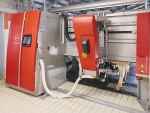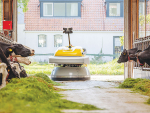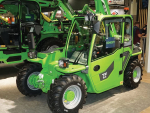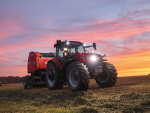With well over 40 years of farming experience, Graham Turner reckons he made the right decision in filling the pit of his 20-year-old herringbone shed in preparation for four Lely Astronaut A4 milking robots.
After 40 years farming in various regions he sold most of the sheep and beef farm he had been running but kept 55ha for a run-off.
He has since spent the past two seasons developing a 200ha dairy farm at Kaukapakapa, northwest of Auckland. Now he awaits the installation of the robots for his 200 dairy cows.
“The advent of higher technology and systems makes obvious the need for automation,” Turner says.
“Individual cow analysis versus whole herd analysis is the most progressive reason behind the change to Lely robots. Soon everyone will need to know more about their cows and robotics allows for that.”
He chose Lely as a “more forward-thinking company than its competitors”.
The robots are scheduled for start-up by December. Meanwhile Lely Center Waikato’s team is working with Turner to enable him to keep milking through the herringbone shed while the new shed is built, then the farm will gradually convert to pasture-based automated milking.
The cows will have access to three pasture blocks via three separate races over 24 hours. The Lely ABC grazing system essentially gives cows freedom to milk when they choose, regularly visiting the milking robot. Cow health is optimised and production increases.
Turner says the robot advantage far exceeds the ability to milk 24/7, 365 days a year. The robots will enable him to “tread softly on the environment” and raise production without having to increase herd numbers.
“The discharge of cow waste will be less by a large proportion. With the robots, cows will stand for only ten minutes and this will lower waste material significantly.”
He plans to gradually convert to split milking and expects to increase production from 60,000 to 90,000kgMS per year.
He will also aim to rear more calves year-round and send all replacements and beef cattle back to his run-off block, which will be made easier by the split calving system.











